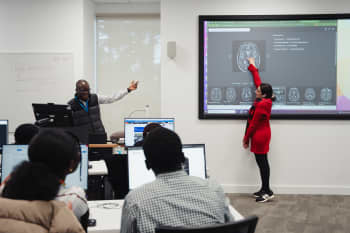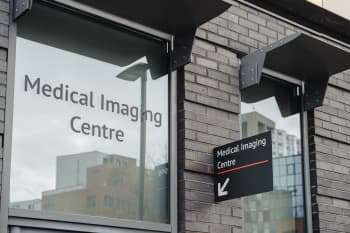Theo Akudjedu: ‘This is one of the most fulfilling things I’ve done in my career’
As an associate professor at Bournemouth University, associate editor for the SoR’s international scientific journal and course lead for the unique Medical Imaging with Management programme, Theo’s responsibilities have skyrocketed over the last two years. Synergy asked him how he juggles it all
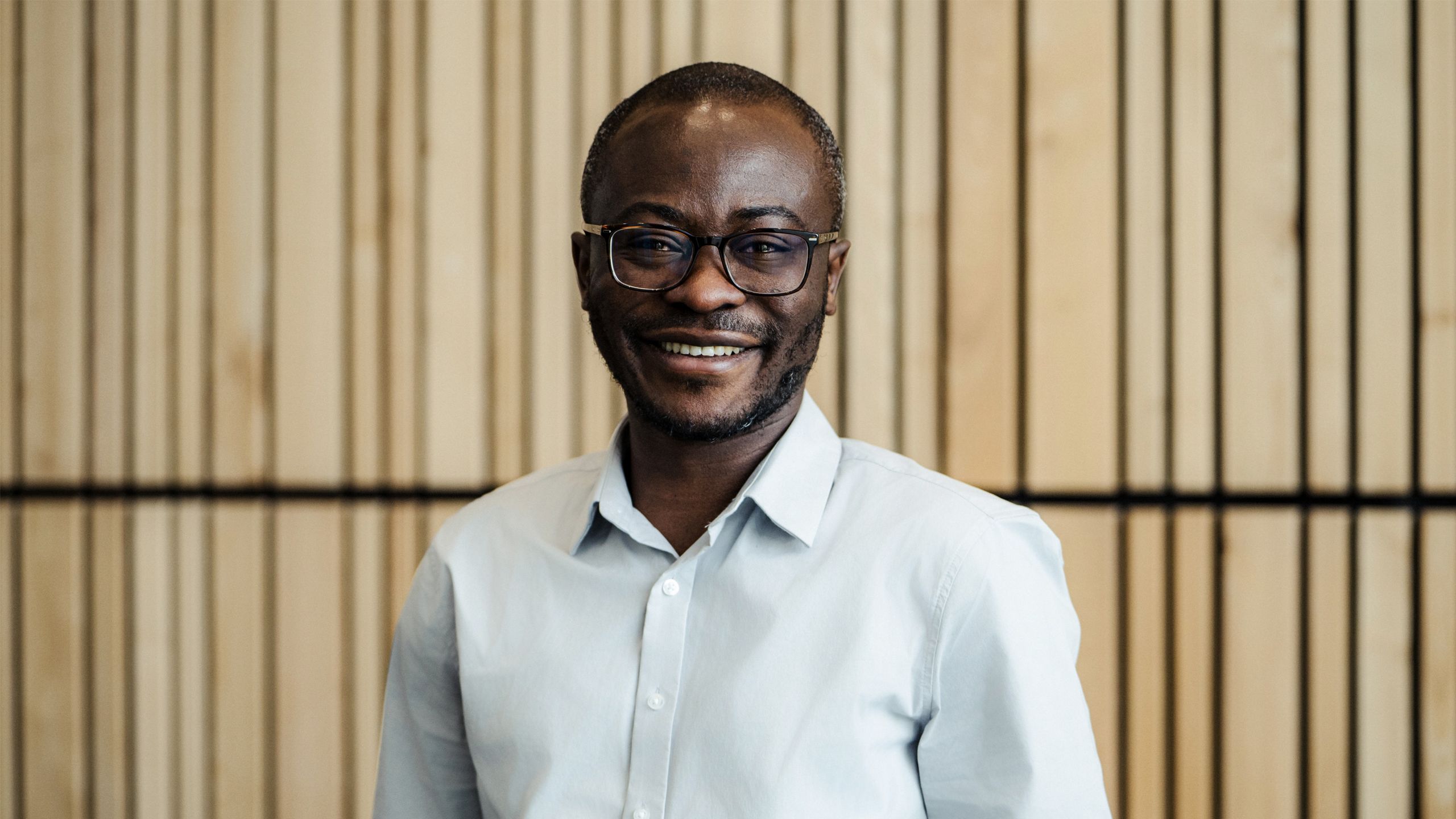
As a radiographer, having an impact on patients is all part of the job, even if that goes under-recognised by the government. Making an impact on the profession itself is a much harder target to reach, but Professor Theophilus Akudjedu is putting in a mighty effort.
Before coming to the UK from Ghana in 2014, Theo worked in various institutions and positions in radiography, in a range of modalities, with teams of greater and lesser experience – and has brought that wealth of knowledge with him to the many roles he now holds.
Theo has been a lecturer at the University of Bournemouth since October 2019, where his focus on radiography training has earned him the position of associate professor. He has been working with students on their research projects and helping them to develop their independence and knowledge base, while also exploring a new area of interest: management and leadership.
Synergy last talked to Theo in October 2023 about his approach to teaching and mentoring. Over the last two years, however, his role has evolved – as has his perspective on radiography education. Juggling new positions, new research and new responsibilities, however, hasn’t been easy. Synergy caught up with Theo earlier this year to find out how he has been handling the bevvy of work on his plate, and his recommendations for managing the broad swathe of opportunities available to radiographers.
Expanding roles and responsibilities
Theo’s first foray into radiography was in Ghana, where he qualified in 2012, subsequently moving between leading hospitals in both the country’s capital and its more rural areas. After arriving in London, he completed his neuroimaging master’s in 2015 at King’s College before transferring to the University of Galway in the Republic of Ireland and gaining a PhD in medicine. In 2019, Theo moved to Bournemouth, where he became principal academic in medical imaging, before being promoted to associate professor of clinical imaging in 2023.
Since then, Theo has attained a number of roles and responsibilities over the course of his efforts to support his department, including associate editor for the SoR’s international scientific journal, Radiography, and supporting his research students with their efforts to study radiography training as a whole.
Of course, that wasn’t enough for Theo. As well as becoming course lead for Bournemouth’s unique Medical Imaging with Management programme, he has also returned to school to take a master’s in business administration, hoping to enhance his understanding of leadership and management in healthcare.
All of which, understandably, has resulted in his attention being pulled in myriad ways.
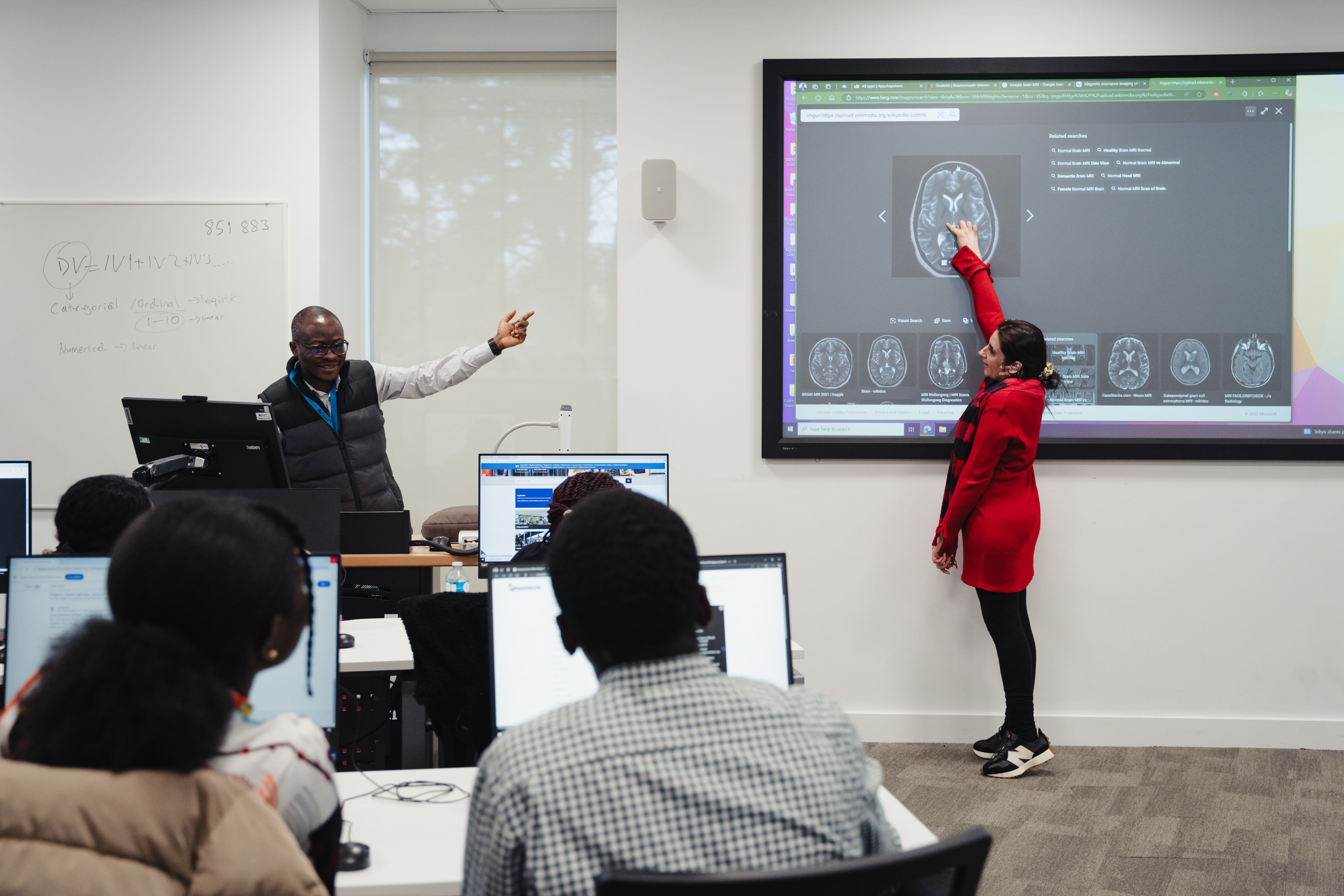
A ‘gatekeeper’ for quality research
One of the most rewarding of these new directions, Theo says, has been his work as one of the associate editors for Radiography. As the SoR’s prestigious international, peer-reviewed scientific journal, Radiography seeks to promote evidence-based best practices, and publishes high-quality clinical, scientific and education research on the profession, both diagnostic and therapeutic. Publishing research articles, reviews, editorials and more, the journal hopes to advance knowledge and encourage innovation in the field of radiography.
Theo’s role as editor has afforded him a much greater influence over, and insight into, submissions to the journal and its publications. Aside from providing the usual editorial support to the journal – reading submissions, editing them for legibility and aiding the team generally – Theo has also edited a special issue on sustainability in radiography. “That was a really good education for me, and it highlighted a very important topic for the profession,” he says. “Being an associate editor is one of the most enjoyable experiences I’ve had throughout my career.
“Of course, it’s challenging, because you need additional commitment – but I would call it one of the most fulfilling things I’ve done in my career, in that you get to gatekeep quality research for the profession.”
Getting to see research that he has worked on, edited or helped translate into best practice to improve the profession, he explains, is one of the things he most enjoys as associate editor: “I’m in a position where I’m able to control quality and what goes into practice – what goes into future developments in the profession. That’s really rewarding. It’s one of the things I can really evidence as a good contribution to the profession – alongside educating students of course!
“It’s something I feel will help to support the profession as a whole.”
When Theo first came into the role, the journal had no ‘impact factor’ – a measure of the frequency of which published articles are cited by other researchers in a particular year. At that point, submissions were low. But when Radiography finally did receive one, alongside its fair share of public attention, the workload of all its editors went sky high. “Now, everyone understands the prestige that is associated with publishing in the Radiography journal, and the volume of submissions has really gone up,” says Theo. “It’s a good thing, of course, but it comes with workload implications for us as editors, which was unexpected for me.”
Thankfully, the journal’s leadership, together with the SoR, has managed this redoubling of labour well. New people have been brought in and more support has been offered in acknowledgement of the sudden increase. “Since then, things have normalised a bit!” he says.
‘The journal is a conduit for you to get word out about your work’
One thing the professor is keen to stress is that the journal won’t accept submissions from radiographers simply because they are radiographers – not only do the editors focus on quality, they also consider the scope of the work. Radiographers can be involved in all types of research and topics, and sometimes these areas may not align with the journal’s stated aims and scope. Looking for the edition’s theme, or the website’s submission criteria, is a vital step in supporting the publication of an article.
All scientific journals have specific author guidelines, too, and Theo wants to make sure radiographers are aware of the rules before they submit – or they risk a blanket rejection. “You may be doing fantastic work but, if you don’t put it in a format that aligns with the general guidelines, it could be desk-rejected,” he warns.
Radiography’s international reach and strong impact factor make it an excellent place for radiographers to share their research, Theo says. “It’s the leading international journal within the field of radiography, and it’s got a global audience,” he continues. “These are important reasons to submit. When you are thinking about getting something published, you need to have a target audience in mind.
“You want radiographers to read your work, and not just radiographers in the UK or in a particular region – you want an international reach. Radiography is a conduit for you to get word out about your work. People from Asia, Africa, America, everywhere in the world, will read your work.”
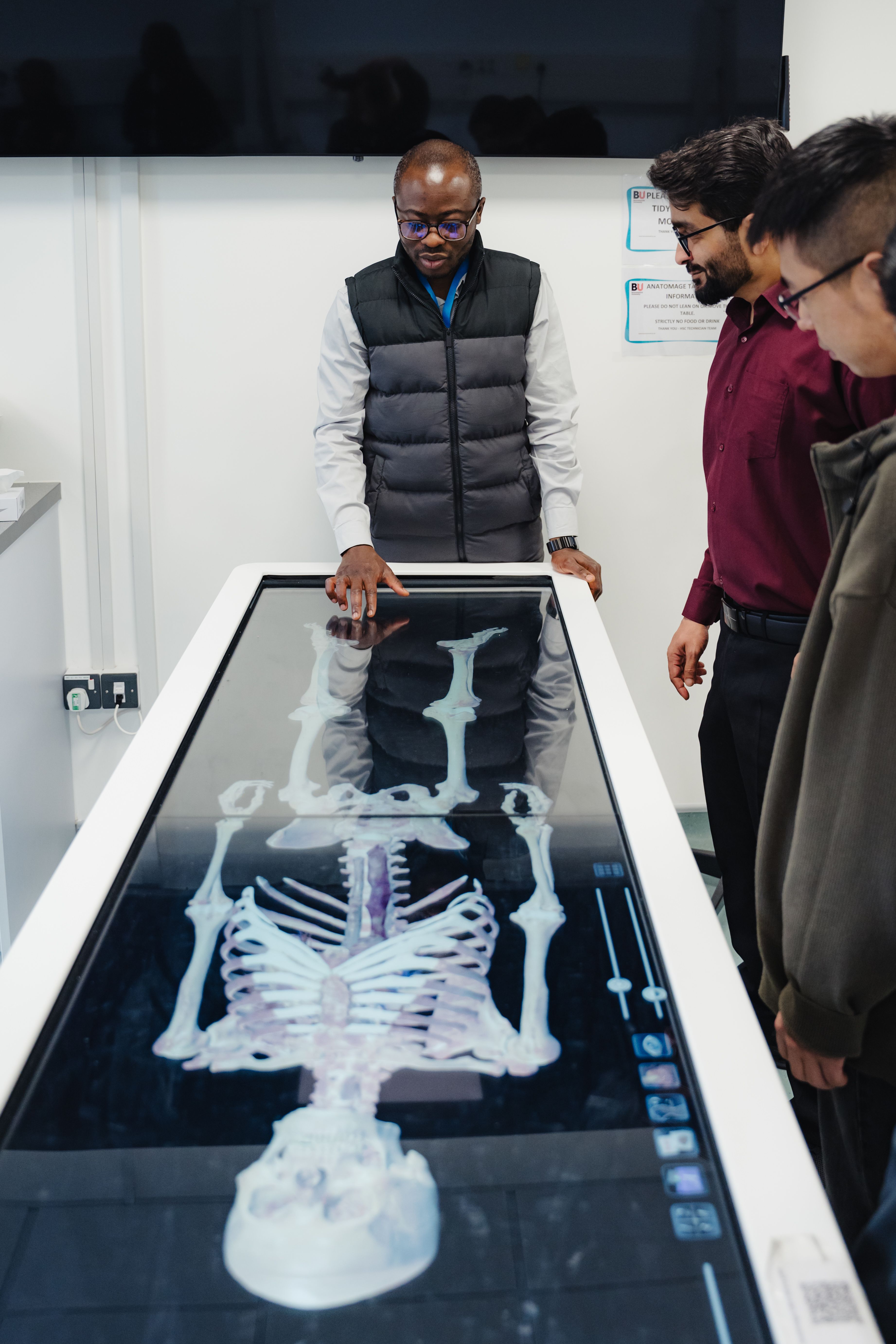
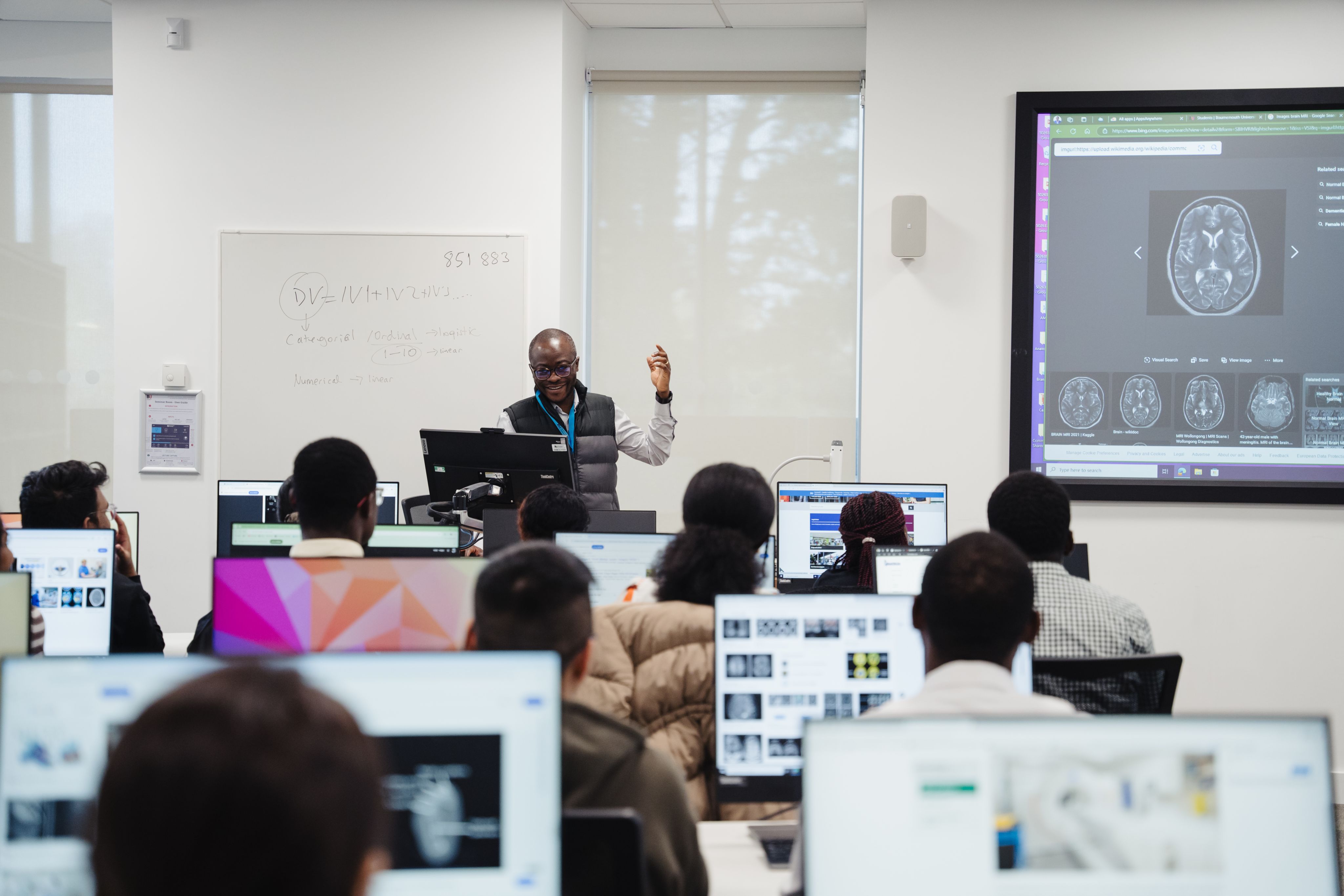
‘My students are really benefitting from those perspectives’
As well as being on a number of committees, Theo doubles as the postgraduate research lead for the department of medical science and public health at Bournemouth, where he takes on a more student-facing role to support doctoral students in exploring their own academic pathways. “At the moment I have five PhD students working on various topics under my supervision, but within our department I oversee all doctoral students, which is really rewarding,” he explains.
The opportunity to get a feel for the research students are doing has helped Theo understand how to support them – not just from an academic standpoint, but also from an independence perspective. “You are like a sounding board for them, guiding them through the procedures and the rules that you know are required of them as part of their doctoral journey,” he says. “That’s a really interesting opportunity.”
Theo’s own research, meanwhile, focuses on environmental sustainability, but has also entered a new area, looking at management and leadership. By considering how these aspects shape radiographic practice, Theo hopes to explore and understand the specifics of how good leadership can support radiographers in achieving best practice.
In support of this, Theo has taken a master of business administration course over the last two years, which finished earlier this year. “It will give me an in-depth understanding of the practice of leadership management and the business side of radiography because, while this institute is for education and research, it’s also a business,” he explains.
“I want to get that detailed knowledge of the business of healthcare, which is actually informing my new research directions.”
Getting a deeper insight into the more commercial side of radiography has also been a boon for his students, he adds.
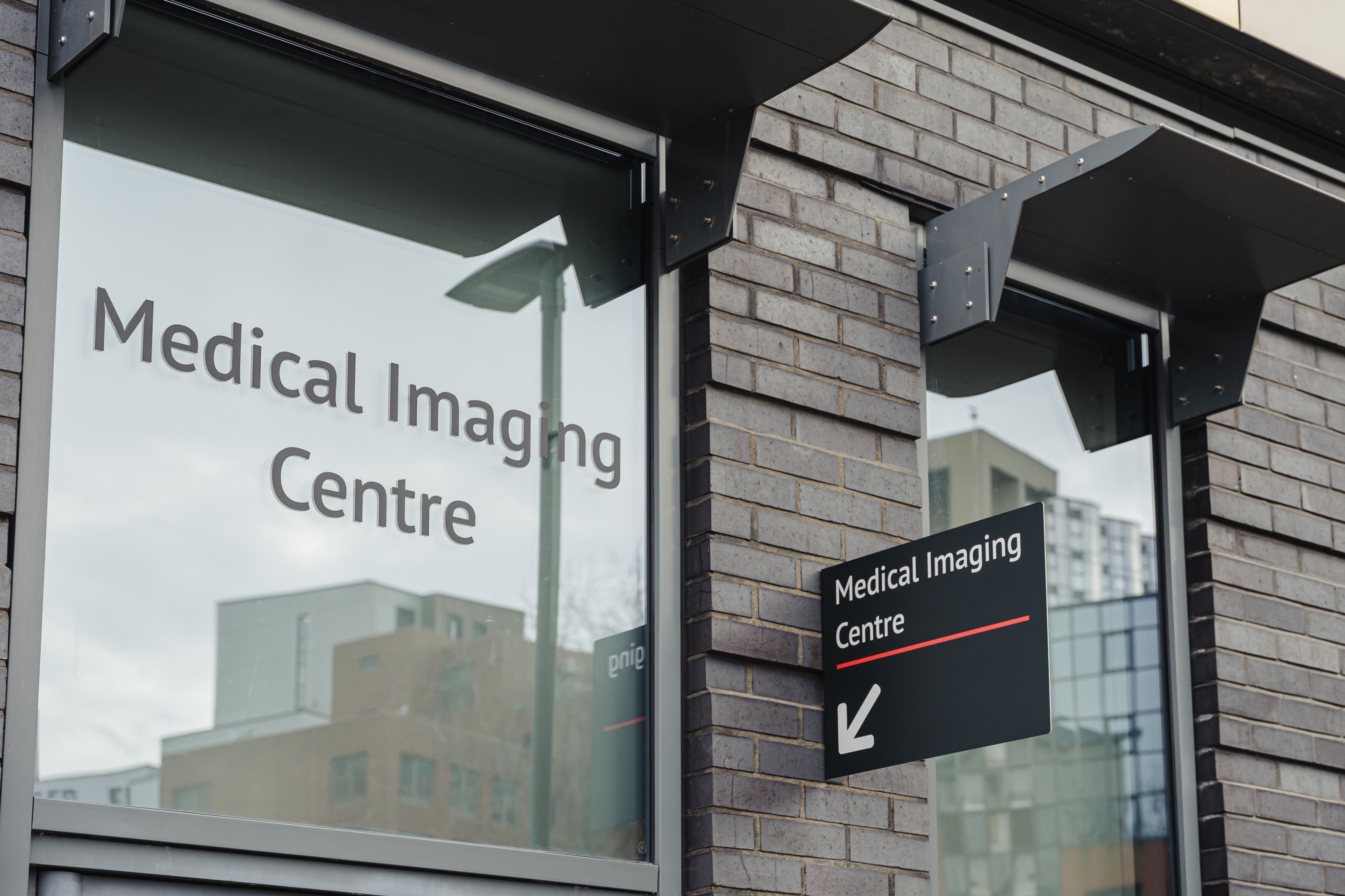
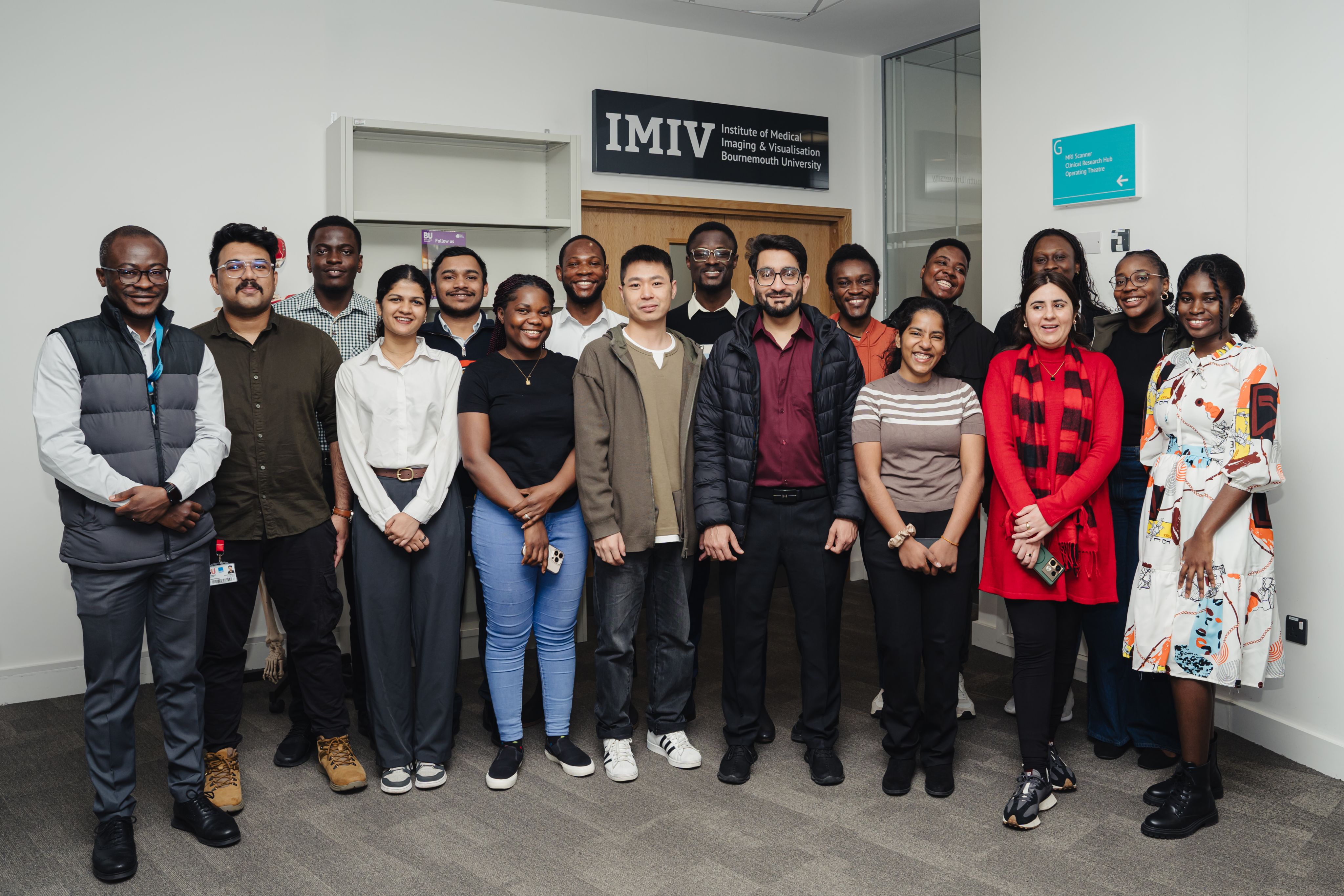
Theo Akudjedu (L) with students on Bournemouth University's Medical Imaging with Management course, by Eva Slusarek
Theo Akudjedu (L) with students on Bournemouth University's Medical Imaging with Management course, by Eva Slusarek
‘My support system helps me to manage my work-life balance’
Juggling the various opportunities and responsibilities afforded to him has not been easy, however. Fortunately, with Bournemouth’s support, Theo has been receiving frequent support and resources, ensuring he can continue to provide both top-notch education and continue his work to develop the profession as a whole. “It’s an interesting challenge,” he says. “I really love what I do, which is the most important thing. You should really love what you’re doing.”
A love of radiography has to come from a supportive foundation, he adds. A passion for the profession is essential but, without systems of support in place, burnout is inevitable. For Theo, this support comes in the form of his family: “My support system helps me to manage my work-life balance. I’m the kind of person who finds it difficult to switch off. It’s really important, getting that nudge from family to see if it’s too much – to really distract me from the things I’ve been doing every day.”
For any other radiographers, particularly academic and research radiographers, Theo recommends seeking out a mentor. “I cannot emphasise it enough. Try to find a mentor – someone you can use as a sounding board, who has also been in the healthcare system. That will help you to get the support that may not necessarily be within your institution. It could be someone external to your institution, sometimes in academia. There are a lot of unspoken rules that require a helping hand to navigate.
“So get a support system, get a mentor, get someone to hold your hand – someone who would mention your name in the rooms where you are not. That’s really important in academia.”
Theo’s home in Bournemouth also offers another advantage to those radiographers who find themselves in need of a break – the beautiful beaches. “I’ve really taken to long walks and travel!” he says. “I’m here in Bournemouth for the beaches.”
Find out more about Radiography
Radiography is the official peer-reviewed journal of the Society and College of Radiographers and the European Federation of Radiographer Societies.
It welcomes radiography research submissions that embrace robust and innovative approaches, and aims to influence clinical practice and patient care by informing practitioners, managers, leaders and policy makers working within or aligned to clinical imaging and radiation therapy services.
More information on submitting to Radiography can be found online here.
Read more



